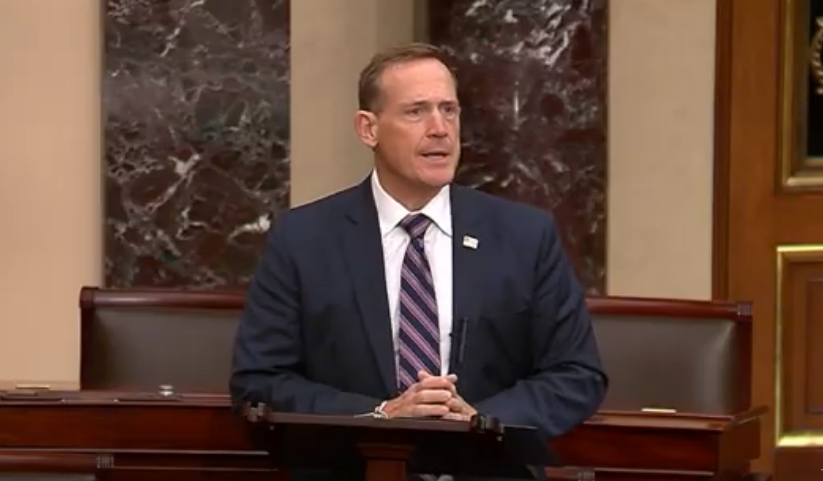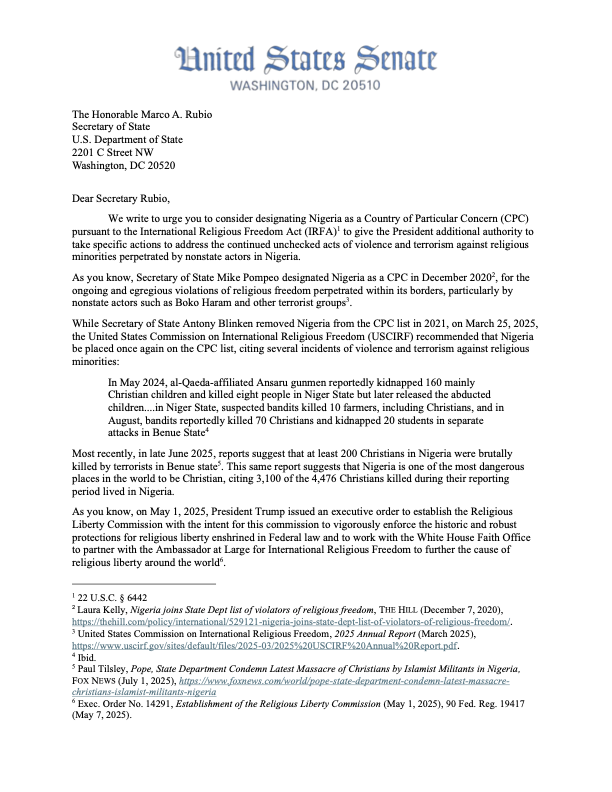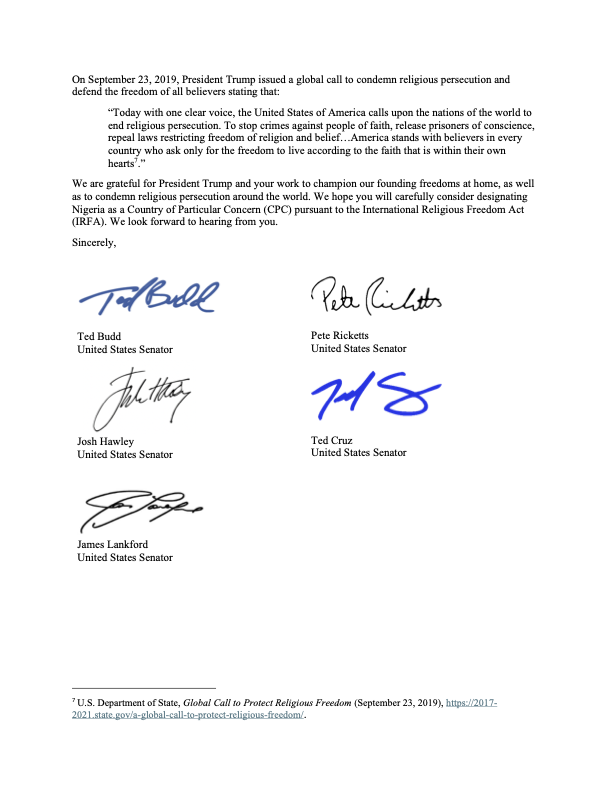
U.S. Senators Urge Secretary Rubio to Redesignate Nigeria as “Country of Particular Concern”
Washington, D.C. (September 19, 2025)
A group of prominent U.S. lawmakers has formally urged Secretary of State Marco A. Rubio to place Nigeria back on the U.S. State Department’s list of Countries of Particular Concern (CPC) for severe violations of religious freedom.
In a letter seen by Peoples Chronicles, Senators Ted Budd, Pete Ricketts, Josh Hawley, Ted Cruz, and James Lankford pressed Secretary Rubio to act under the International Religious Freedom Act (IRFA), warning of “continued unchecked acts of violence and terrorism against religious minorities perpetrated by non-state actors in Nigeria.”
Nigeria was first designated a CPC in December 2020 by then–Secretary of State Mike Pompeo, largely due to widespread attacks by Boko Haram and other extremist groups. In 2021, during Joe Biden’s administration, Secretary Antony Blinken removed Nigeria from the list, a move that drew sharp criticism from human-rights advocates and religious-freedom organizations.
The Senators’ letter highlights a string of recent atrocities, including:
-
May 2024 (Niger State): Al-Qaeda-linked Ansaru gunmen reportedly kidnapped 160 mostly Christian children and killed eight people.
-
Mid-2024: Suspected bandits murdered 10 farmers, including Christians, and later in August killed 70 Christians and abducted 20 students in Benue State.
-
June 2025 (Benue State): At least 200 Christians were “brutally killed by terrorists,” according to reports cited in the letter.
The Senators noted that Nigeria accounted for 3,100 of the 4,476 Christians killed worldwide during the most recent reporting period by the U.S. Commission on International Religious Freedom (USCIRF).
Referencing President Trump’s May 2025 Executive Order creating a Religious Liberty Commission, the letter urges the Biden-Harris administration to “vigorously enforce” protections for religious liberty and to work with the Ambassador-at-Large for International Religious Freedom to address what the Senators called “one of the most dangerous places in the world to be Christian.”
The lawmakers also quoted a 2019 U.N. address by then-President Trump:
“America stands with believers in every country who ask only for the freedom to live according to the faith that is within their own hearts.”
The senators urged Secretary of State Marco Rubio to immediately restore Nigeria’s Country of Particular Concern designation, noting that the earlier removal of Nigeria from the list in 2021 weakened international pressure on Abuja to protect religious minorities.
U.S. Commission on International Religious Freedom (USCIRF) has consistently urged the U.S. State Department to return Nigeria to the CPC list. Their 2025 report underscores that religious violence has remained high and that protections for minority faith communities remain inadequate.
International NGOs like Open Doors, ADF-International, and Christian Solidarity Worldwide have condemned the violence, calling it not only a security crisis but a growing religious persecution issue. They have cited widespread attacks on churches, kidnappings, and displacement of Christian populations.
In Nigeria, pastors and church leaders across Benue, Plateau, and other states have decried what they see as government inaction and weak responses to attacks. Many have called for stronger accountability of state security forces.
Civil society groups such as InterSociety have organized marches, peace vigils, and public statements demanding that the state government and the federal government accept that Christians are targeted, emphasizing that victims deserve recognition and protection.
Human rights monitors argue that many of the attacks are perpetrated by non-state actors and that part of the problem is weak enforcement of law, and Nigerian government’s negotiations with terrorists.
There is also criticism of local governments for failing to provide adequate early warning systems, security infrastructure, or compensation for victims.
Nigerian federal authorities have acknowledged the violence but often characterize incidents as part of banditry, herder-farmer conflicts, or criminal gangs. They sometimes contest the numbers of victims or dispute whether faith was the primary motive.
Activists want not just recognition but action — better protection, justice for past attacks, and systemic reforms.
Restoring Nigeria’s Country of Particular Concern (CPC) designation under the U.S. International Religious Freedom Act (IRFA) would give the U.S. government a stronger legal and diplomatic framework to act, aimed at pressuring the Nigerian government to curb religious persecution.

